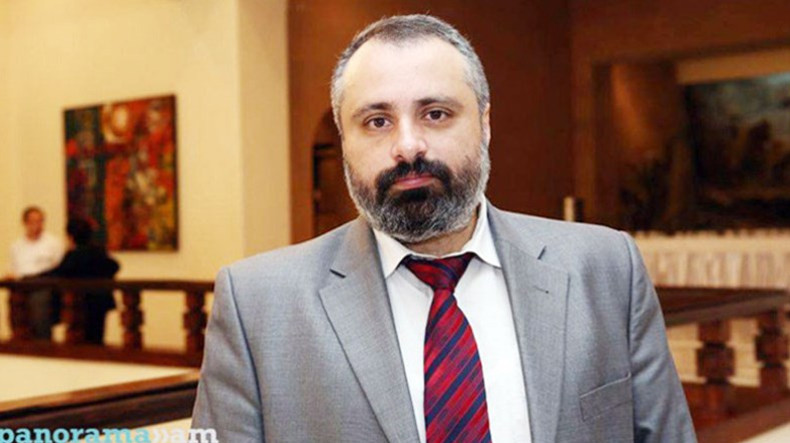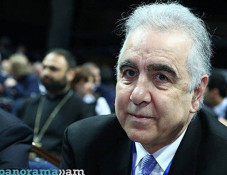
There can be no compulsion – Artsakh official
The January 16 meeting between the foreign ministers of Armenia and Azerbaijan over the NK peace process received much attention in the media and among social media users. The discussions and comments specifically focused on the part of the OSCE Minsk Group Co-Chairs official statement, saying “the Ministers discussed a wide range of issues related to the settlement of the Nagorno-Karabakh conflict and agreed upon the necessity of taking concrete measures to prepare the populations for peace.”
Panorama.am turned to the head of Information Department at the Artsakh President’s Office Davit Babayan to comment on the recent meeting and the formulations found in the text.
“We have always welcomed those meetings, as they are considered to ensure the continuity of the peace process and are viewed as an important element in terms of maintaining peace and stability in the region. Those meetings are of addition value, considering also the power change in Armenia to make sure the talks over the Karabakh issue has not entered deadlock as a result of that change.”
Asked about the parties’ agreement ‘to take concrete measures to prepare the populations for peace,’ Babayan said: “Let us first note, that the point is about preparing people for peace not yet for the peace agreement. This is important as peace itself is a quite comprehensive concept. It is hard to set deadlines as those deadlines would itself mean compulsion. We cannot accept compulsion, as the Co-Chairs have numerously voiced about their role of being mediators not judges. The official position of Stepanakert is that no peace is ever possible without establishing the respective atmosphere for that. Armenophobia has explicitly been at the heart of Azerbaijani policy over the past 30 years. How can we imagine a comprehensive settlement under these conditions? Azerbaijani approach on the settlement is mostly about occupying Artsakh. To speak about preparing for peace implies getting rid of Nazism, understand that revenge may lead to unforeseeable consequences. They [Azerbaijanis] should be able to live and work side by side with us as neighbors and therefore refuse from belligerent rhetoric,” noted the Artsakh official.
Babayan next referred to the Azerbaijani practice of refusing from taken commitments. “Azerbaijan often says something and acts in a completely different way. We should never lose our vigilance. While continuing the talks, we should strengthen our army, as the Artsakh fate determines the fate if Armenian statehood,” Babayan concluded.
Newsfeed
Videos






























